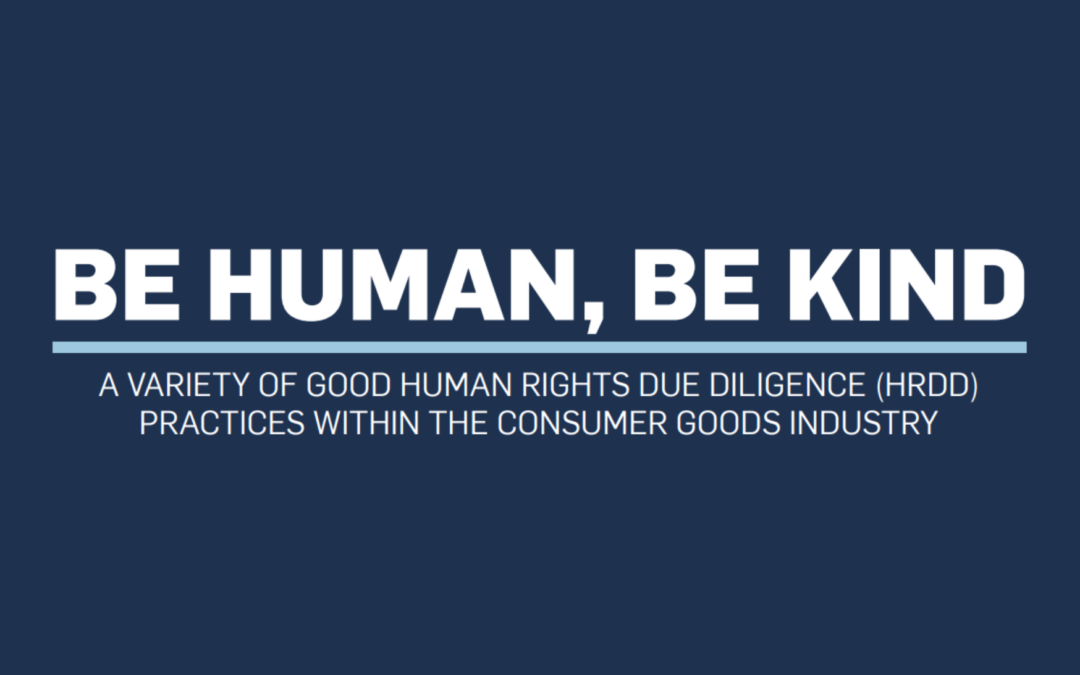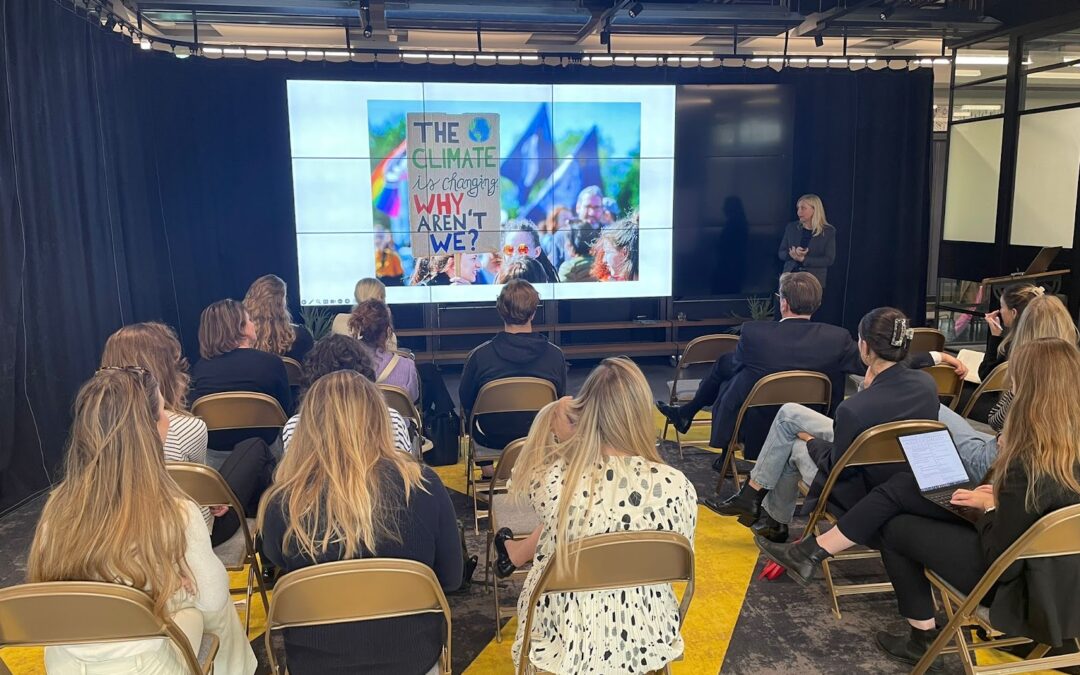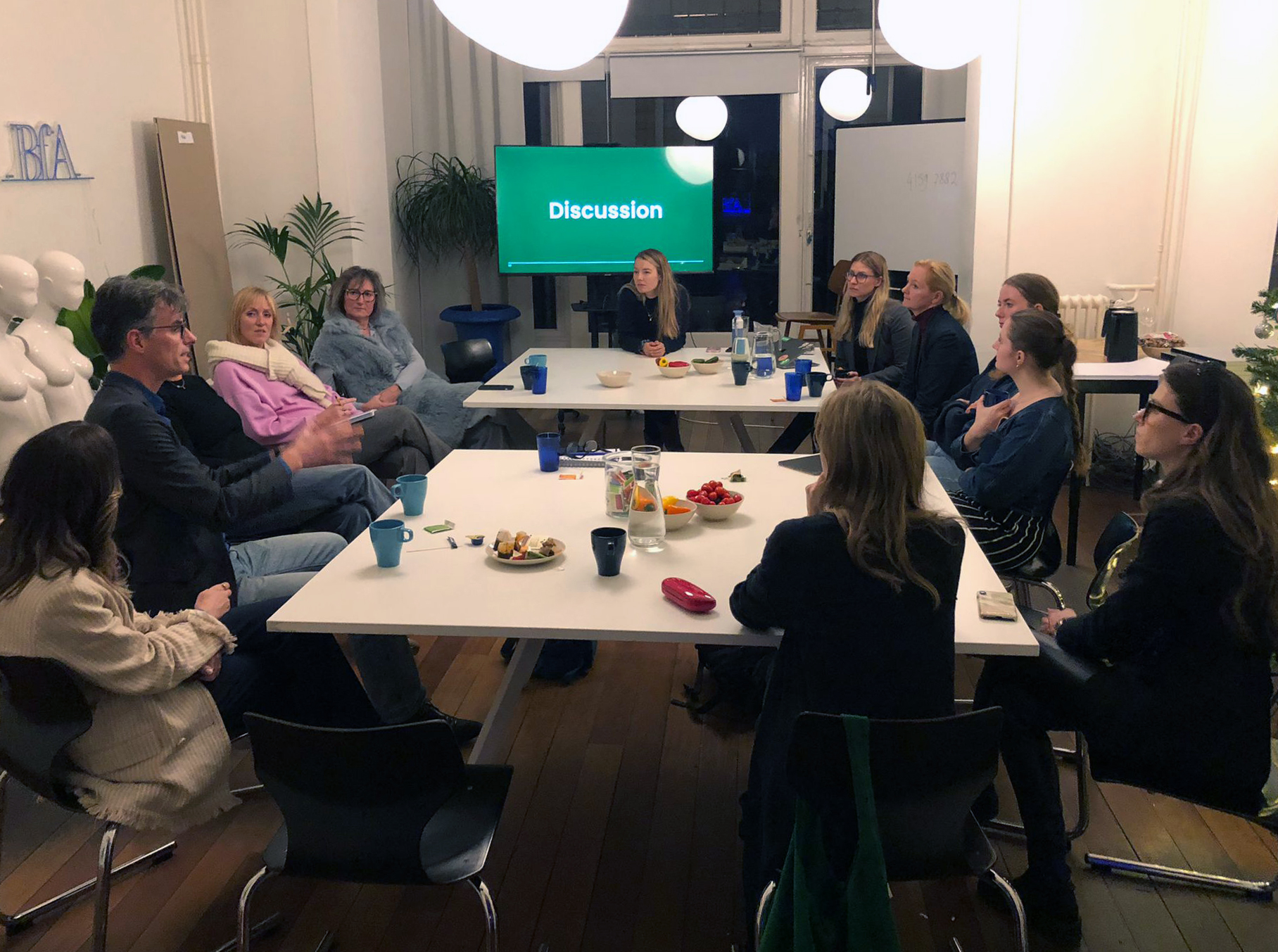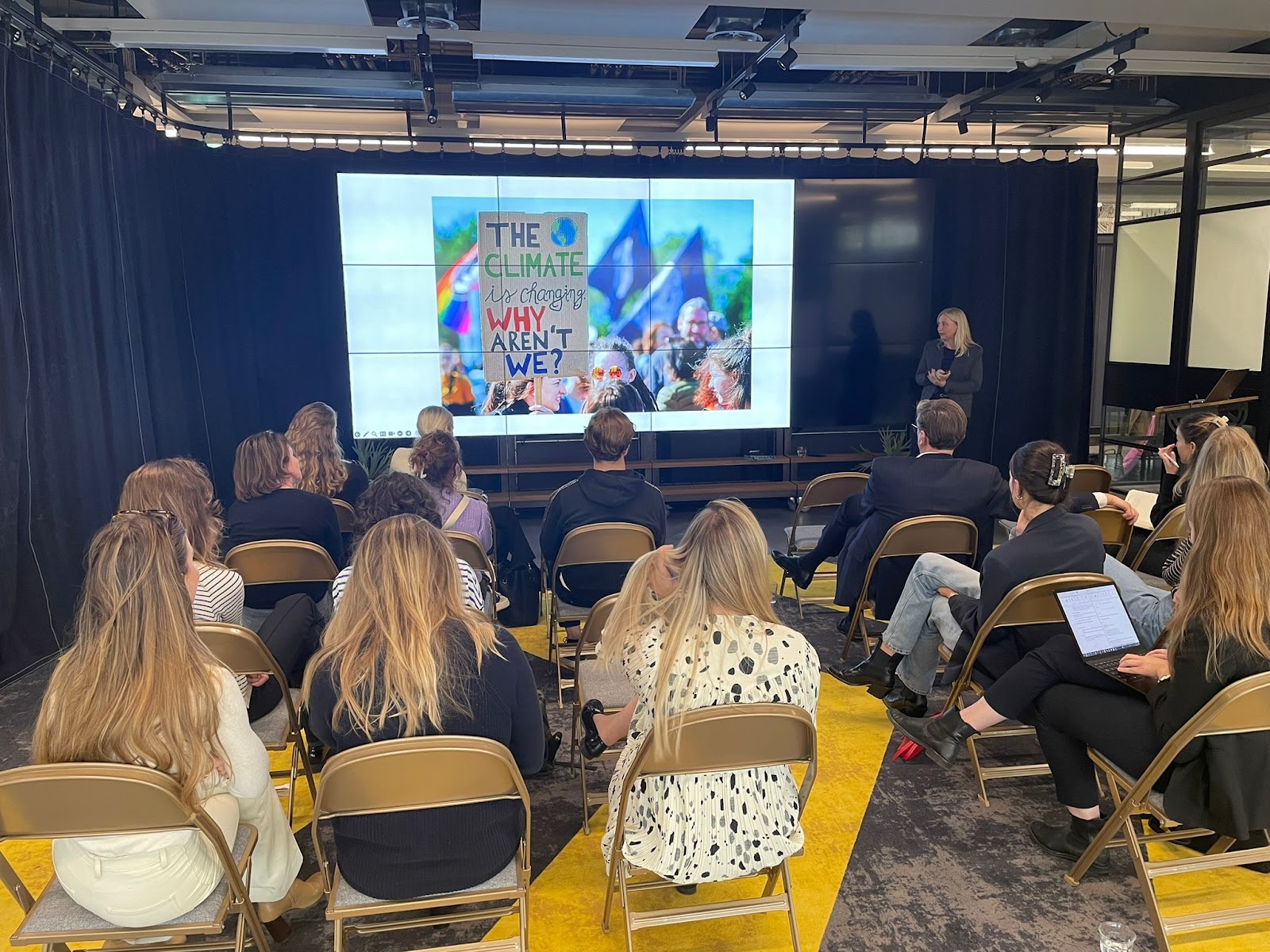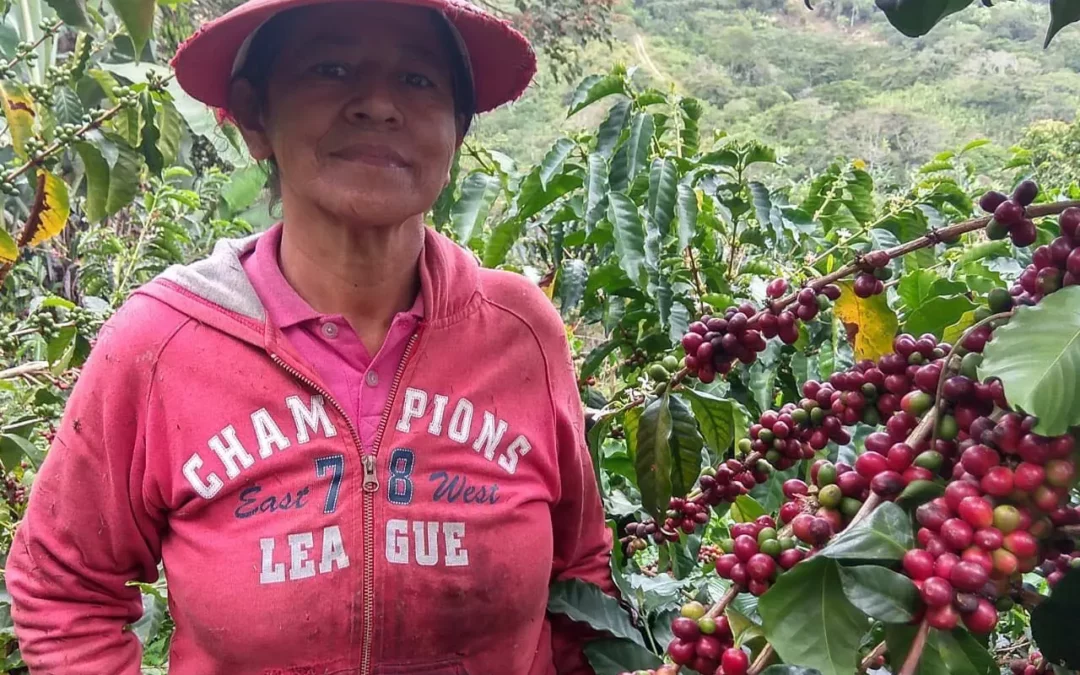
MKB-ontbijt: Strategische partnerschappen in de waardeketen
MKB-ontbijt: Strategische partnerschappen in de waardeketen
Op donderdag 15 februari 2024 vond het derde MKB-ontbijt plaats. De MKB-ontbijtserie is in het leven geroepen om de specifieke kansen en uitdagingen op het gebied van duurzaamheid voor het MKB te bespreken.
Dit keer stond de sessie in het teken van strategische partnerschappen. Een veelvoorkomende uitdaging voor het MKB is namelijk het vinden van geschikte partners in de waardeketen, het omgaan met verschillende doelstellingen en culturele verschillen. Er was een gevarieerde groep bedrijven aanwezig met lokale, Europese en internationale georiënteerde waardeketens.
Harm Jansen, eigenaar van Kinti Coffee, trapte de sessie af met een presentatie over de duurzame partnerschappen binnen zijn bedrijf. Kinti Coffee levert duurzame koffie, voornamelijk aan kantoren. Omdat Kinti Coffee rechtstreeks bij de boer inkoopt in plaats van bij traders, hebben ze meer zicht op de waardeketen en kan het echt transparant zijn. Zo wil Kinti de standaarden in de koffie industrie veranderen en de verschuiving naar biologische koffieproductie in Colombia versnellen. Dat doen ze ook door de kennis over fairtrade produceren te vergroten, o.a. via trainingen met CLAC. Daarnaast benutten ze “koffieafval” door bijvoorbeeld houten planken te produceren van koffiebesjes, zoals te zien is in deze video van Woodpecker.
Volgens Harm zijn partnerschappen de levensader van zijn bedrijf, samen leren en groeien is cruciaal. Maar met wie ga je in zee? Kinti is kritisch als het gaat over het selecteren van partners, wat het proces soms ingewikkeld maakt. Het kost nou eenmaal tijd om bij lokale boeren het belang van duurzaamheid over te brengen. De andere deelnemers aan het ontbijt lieten weten dit probleem te herkennen, ook zij lopen tegen uitdagingen aan bij de transitie naar nieuwe, duurzamere partners. Vooral voor het MKB blijkft dit ingewikkeld en kostbaar te zijn, en dat is wellicht waar UN Global Compact een helpende rol kan spelen.
Essentieel bleek de rol van een gedreven voortrekker bij de partner die door Kinti voorzien werd van gedegen analyses en overtuigende informatie. Ook spelen cultuurverschillen een rol. Tot slot zijn administratie, subsidieprojecten en rapportage een enorme tijdsinvestering voor het MKB. Verschillende systemen en gebrek aan uniformiteit in documenten verhogen administratieve druk.
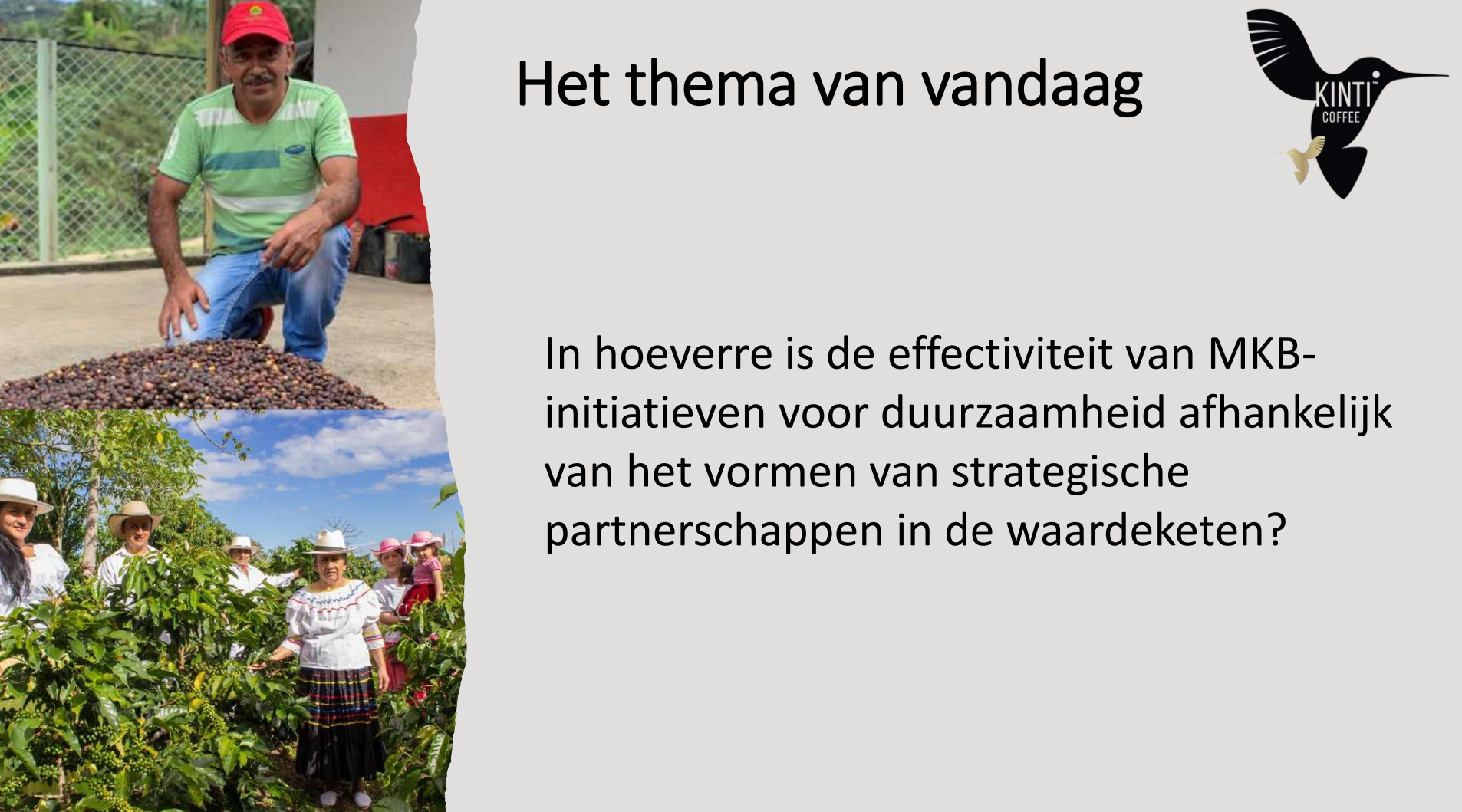
CSRD en andere aankomende wetgeving zal zeker effect hebben op MKB-bedrijven en hun samenwerkingen met leveranciers. Omdat Kinti rechtstreeks inkoopt heeft het beter zicht op de waardeketen en kan het hier makkelijker op inspelen. Kinti probeert waar mogelijk de keten te verkorten, bijvoorbeeld door lokale producenten op te leiden tot koffiebranders. Samenwerking met conculega’s is vooral qua transparantie een uitdaging. Een mooi voorbeeld uit de transportsector is de samenwerking om containers te consolideren zodat er geen lucht verscheept hoeft te worden. Dat is een win-win-win: kostenbesparing voor zowel de klant als het bedrijf en winst voor de planeet.
Ondanks dat iedereen het er over eens is dat je samen verder komt dan alleen, blijft samenwerken met conculega’s ingewikkeld. Dit is zeker het geval buiten Europa, waar partijen lang niet altijd alle informatie met elkaar willen uitwisselen. Dit kan ervoor zorgen dat potenties niet optimaal worden benut.
De ambitie voor de toekomst is om de duurzame impact geleidelijk aan te vergroten en zo stapsgewijs de transformatie op gang te brengen. We willen Harm en alle deelnemers bedanken voor het delen van hun tips en ervaringen. Heb je nog vragen voor Harm Jansen? Je kunt hem bereiken via email, harm.jansen@kinticoffee.nl.

